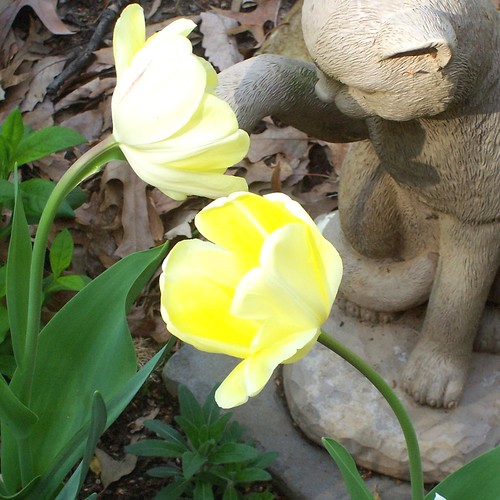The other day though, the question 'Why garden when there are supermarkets?' arose in another venue. I have heard this before, will probably hear it again, and it deserves a thoughtful answer.
Actually, there are several answers. Some gardeners will say it's because when they grow something, they know not only what it is and where it came from, but what pesticides were used on it, how it was fertilised and watered, and that vulnerable workers were not exploited in its production. These are sound and practical reasons to grow your own food.
Another practical answer is 'but I can't get everything at the supermarket.' The supermarket does not carry (for instance) blackcurrants and gooseberries, or the particular figs of my childhood, or tomatoes worth eating.
But, you may say, there are other ways to get organic, ethically produced fruits and vegetables, and you can get along without that specialty produce. It's true. Well, maybe not the part about getting along without the tomatoes. I'm pretty sure life without tomatoes is not worth living.
It's also true that the 'why?' question could be applied to pretty much anything people do.
Why knit when you can buy socks and gloves? (I have been asked this, often).
Why play an instrument or sing when you can download almost anything you could want to hear from Amazon or iTunes, recorded by people who are quite possibly more talented than you?
Why paint or take photographs when you can buy a perfectly good poster to hang over your couch?
Why dance when you lack both grace and rhythm and will undoubtedly look like a fool to any observers?
Why, indeed.
For myself, in part I garden because I'm an historian. I draw tremendous satisfaction from doing the work and seeing the flowers that people a hundred years ago, or a thousand years ago, also did and saw.
But I don't grow tulips just to feel closer to 400-years-dead Dutch burghers and Ottoman sultans. I've written in the past about tulip bulbs, how beautiful they are in themselves, and how satisfying it is just to hold them and plant them. I've written also about the ability tulips have to bring you into the now, and that's one of the things I find most valuable about gardening. When tulips bloom, you have to stop right now and look at them, because they don't last long. Delay, and you miss them.

That's the power of a garden. It demands you pay attention to the present, even as you think of the past (if you're like me) or look ahead to the future (if you're impatient for tomatoes).
That power is made manifest throughout the growing season. Irises. Roses. Peas. You may not grow more, or bigger, strawberries than you can buy at the store, but yours will almost certainly be sweeter -- for the practical reason that you didn't pick them green and gas them in refrigerated trucks, and for the less practical reason that this is it. These are your strawberries for the year.
Now, what brings joy to one person is not guaranteed to bring joy to another, and if staking and weeding tomatoes does not bring you joy -- or the pains of staking and weeding are not made worthwhile by the pleasure of biting into a just-plucked, sun-warmed tomato and letting the juices dribble down your chin -- then I do not expect you to be converted. Not everyone is meant to be a gardener.
But even a non-gardener will understand that gardeners do what we do for the same reasons people sing and dance, knit socks, paint, and take photographs: because we find pleasure and meaning in doing these things ourselves. And also because really good tomatoes are worth a little trouble.
Dylan Thomas

"That's the power of a garden. It demands you pay attention to the present, even as you think of the past (if you're like me) or look ahead to the future (if you're impatient for tomatoes)."
ReplyDeleteThat's the most quotable thing I've read all day, 'Nora. Brilliant. Thank you.
Aw, thanks, Charlotte.
ReplyDelete